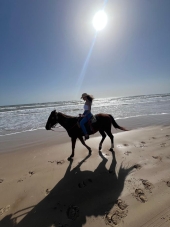
 2
2







 8
8




 5
5




 5
5




When you reach your lowest point, you are open to the greatest change.
-Avatar Aang
 3
3




James Landreth wrote:I second Galen's view. Water is important. Community is almost just as important though. It really will make you or break you. For me that community is the United Methodist church of the Pacific Northwest, because they accept everyone and many here are gardeners and support my food forest activism.
Come join me at www.peacockorchard.com
 2
2




When you reach your lowest point, you are open to the greatest change.
-Avatar Aang
 5
5





 3
3




Some places need to be wild
 2
2





I make a Maple Syrup instructional movie! Check it out HERE
SKIP books, get 'em while they're hot!!! Skills to Inherit Property
See me in a movie building a massive wood staircase:Low Tech Lab Movie
 1
1





















Some places need to be wild




James Landreth wrote:I second Galen's view. Water is important. Community is almost just as important though. It really will make you or break you. For me that community is the United Methodist church of the Pacific Northwest, because they accept everyone and many here are gardeners and support my food forest activism.
Here's a post I wrote about my county:
https://permies.com/t/100135/Praise-Lewis-County#1013328







Eric Hanson wrote:Leif,
You have me thinking more about your inquiry. Something to consider is what exactly do you plan to do with your land? In particular, what do you plan to do to make a living (money) from your land.
The reason I ask is that if you have a basic idea, you can maximize that plan. Say that you want to grow raspberries. Great! You could certainly sell raspberries at a farmers market. Better would be to offer a special, unique type of item.
Even better would be to be offer a value-added product. For example, take those raspberries and make them into a pie or raspberry crisp, etc. maybe make some type of air freshener, or some other products. The point is that you could likely sell the product for considerably more than the raspberries themselves.
Come to think of it, plain old flowers could be used to make soaps, lotions, perfume, or all sorts of fragrant products. Specialization and value added products can take a very common (and therefore inexpensive) item and make it much, much more valuable.
These are again, just my thoughts,
Eric



 1
1




I make a Maple Syrup instructional movie! Check it out HERE
SKIP books, get 'em while they're hot!!! Skills to Inherit Property
See me in a movie building a massive wood staircase:Low Tech Lab Movie










 1
1




Some places need to be wild
 2
2







 1
1




Permaculture...picking the lock back to Eden since 1978.
Pics of my Forest Garden










 2
2




Some places need to be wild

















 1
1




Some places need to be wild





Hans Albert Quistorff, LMT projects on permies Hans Massage Qberry Farm magnet therapy gmail hquistorff
 1
1




Tyler Ludens wrote:Slope.
Just let it grow already
 1
1




I like Geoff Lawton vids too, but also check Sepp Holzer... he’s got a bit of slope in the Alps! It’s just that maybe you have to look outside traditional/commercial methods, I think. Your slope-y land probably has the potential for MANY micro climates! I’ve even considered looking into buying land in Northern Texas... semi arid, higher altitude, would have challenges to be sure but land’s fairly cheap. Probably need to import a lot of biomass especially early on, get animals going ASAP, try to set up paddock rotation and have them help build the soil/sand through deposits, irrigation would be more challenging early on too, but have seen some cool YouTube videos of people doing it and creating an oasis over the course of years. One woman comes to mind, I think in the desert of AZ or NM, after 10-15 years she had built a stone wall around her acre or so, and all around was desert but she had a garden, trees, lots of birds and even butterflies in her lush private area. Truly inspiring!Ty Greene wrote:
Tyler Ludens wrote:Slope.
Could you elaborate just a bit more, thanks!
...We bought our land with recreational only intentions, and thought the slopes would be fun for trails to hike/bike/ride. That it is, but then I considered some farming.
I was actually disappointed in my choice several months ago because I feel like I didn't consider having enough "flat" to do anything with - out of 28 ac. barely an acre is level. We are way up on a rocky ridge.
My thoughts have evolved again over the last few months though and I now envision all kinds of beautifulness integrated into the hillsides (thanks to Geoff Lawton vids).







Leif Ing wrote:Not sure if this is the best place to post this, so mods feel free to educate me and/or move it where appropriate please. :) I am curious, where do y’all look for land, those that want land outside the cities? What size parcels? How much slope, trees, type of soil, zoning? I’m looking myself, hoping to buy in the next 3 years or less, and not really set on too many things other than staying in Missouri,

| I agree. Here's the link: http://stoves2.com |




